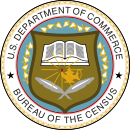- German American National Congress
-
The German American National Congress (German: Deutsch Amerikanischer National Kongress) (also known as DANK) is a national German-American nonprofit organization in the United States. DANK was established to unite Americans of Germanic descent, while preserving their heritage and traditions on a local and national level. With over 30 chapters and more than 100 associated members throughout the country, DANK is the largest organization of German-Americans. DANK was founded in 1959;[1] more than a half-century later, it still actively unites German-Americans across the United States.
Contents
Cooperation
Throughout its history the German American National Congress has had close relationships with U.S. governmental and civic bodies including the White House, the German Embassy in Washington, D.C., German consulates, and a number of other German organizations. In 1987 DANK was involved in the adoption of October 6 as German-American Day, which is observed on a national level.[2]
German-American Journal
 Cover of April/May 2009 German American Journal
Cover of April/May 2009 German American Journal
The German-American Journal is the official newsleter of DANK, and is published bimonthly. At the start of DANK in 1959 the newspaper consisted of six pages, was issued every three weeks, and was written almost entirely in German. As of 2011, the paper is 16 pages and written primarily in English (articles written in German are often accompanied by an English translation or summary). Recurring topics in the Journal include current events, food and entertainment, reviews, organization news and other articles of interest to German-Americans. Members of DANK automatically receive a copy of the newspaper as part of their membership, and non-members may purchase an annual subscription.
National website
Launched in the late 1990s,[3] DANK's website (dank.org) was one of the early cultural organizations to gain a foothold on the World Wide Web. It served as a means of attracting new members to the organization by offering information on the German American National Congress. In February 2009, the website underwent its first major upgrade of its appearance and content to appeal to the younger generation of German-Americans. Not only can people learn about the organization (as they could in the past), they can now interact by participating in a discussion forum, Facebook and the national president's blog.
Organizational structure
DANK is made up of chapters throughout the United States, which are divided into three regions: Regions One through Three. Along with its chapters, DANK has its national headquarters (DANK National) located in Lincoln Square, Chicago, Illinois. On the national and chapter level there are board-member positions which aid in keeping the organization running, and are responsible for organizing events and activities which aim to unite people of German-American descent.
National executive board
Name Position William Fuchs National President Erich Wittmann First Vice-President Donna Lippert Second Vice-President Maria Thompson Treasurer Beverly Pochatko Secretary List of chapters
State Chapter name Arizona Phoenix California Woodside (King's Mountain) Iowa Quad-Cities Illinois German American Cultural Center Illinois Frankfort Mokena German Heritage Center Illinois Chicago-West Illinois Decatur Illinois Fox Valley Illinois Lake County Illinois Northern Suburbs Illinois Peoria Illinois Springfield Indiana Indianapolis Indiana La Porte Indiana LaFayette Indiana South Bend Michigan Benton Harbor New Jersey Pascack Valley Ohio Cleveland Ohio Columbus Pennsylvania The German Heritage Society Pennsylvania New Castle Pennsylvania Erie Pennsylvania Philadelphia Pennsylvania German American Heritage Society of Pittsburgh Pennsylvania Mason-Dixon (Subchapter of Pittsburgh) Pennsylvania Laurel Highlands (Subchapter of Pittsburgh) Washington D.C. Washington D.C. Wisconsin Janesville Wisconsin Milwaukee References
- ^ DANK national website Retrieved 2011-08-14.
- ^ History of DANK Retrieved 2011-08-14.
- ^ dank.org website registration Retrieved 2011-08-14.
Categories:- German-American culture
- Lineage societies
Wikimedia Foundation. 2010.

